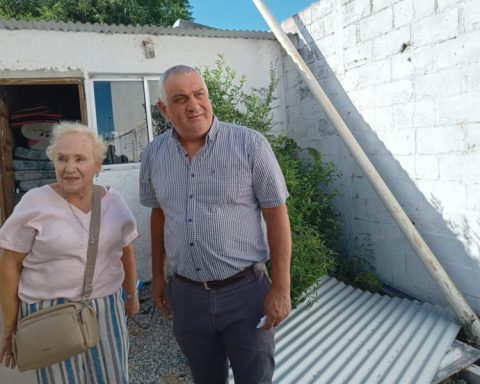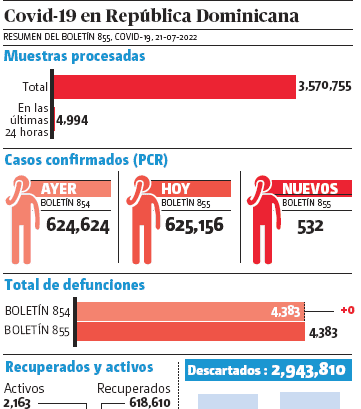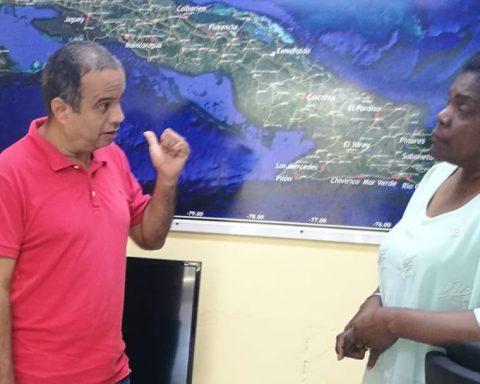The Accountability project sent to Parliament last month included the issue again piracy controlbut now he focused on the transmissions of sports shows via streaming that multiply every day and every hour.
There are two articles that enable the Regulatory Unit for Communications Services (Ursec) to terminate these services in real time, provided that it is verified that they were broadcasting content illegally. The objective is that only those who can prove that they have the rights to do so in the national territory broadcast over the internet.
Step by Step
How will pirate broadcasts be blocked if the official proposal is approved? The Ursec will have a registry with the data of the holders of the rights in Uruguay for different matches, championships and events. For example, in the days before a football match is played, the owners of the rights must inform Ursec of the media that are enabled for transmission and, at the same time, submit a list of unauthorized sites (URLs, domains, IP addresses).
The Ursec will order a precautionary measure ordering the three companies that provide internet access to disable access to live content that is in violation.
To execute the cut, on the day of the event each of the companies must load the information provided from the sites in intelligent software that is used for this type of operation, he explained to The Observer the national director of Telecommunications (Dinatel), Guzmán Acosta y Lara.
The precautionary measure may be issued with a maximum of 30 days to block the offending website regardless of the domain name or IP address used., and without the need for a new protection to be issued. This gives the possibility that the blocking request can be made in advance for a set of matches of a local championship or the Copa Libertadores, for example, or even an entire tournament such as a world championship.
“There is always the possibility of going to judicial activity and it is normal for it to be done. But for live events when it is certain that the right holder has been violated, the process may be initiated before the Ursec at the time, through a precautionary measure that the agency will dictate, “said Acosta and Lara in the Commission of Budget integrated with Treasury of the Parliament.
Lock in 30 minutes
The block will be activated at the latest within 30 minutes of receiving the notification. “In 30 minutes a blockade must be initiated”, through the software, expressed the hierarch. (…) It is they —through the Internet companies— who are going to do the work of removing it in real time, because it makes no sense to establish this regulation to combat live streaming. If we have to go for more than 30 minutes, you already saw the whole game and, obviously, the rule no longer makes any sense”, said the head of Dinatel.
One of the proposed articles states that intermediaries or Internet access providers are not responsible for the data stored or transmitted to other recipients of the service. Without prejudice to this, it establishes that “the service provider must act promptly to remove the content or make access to it impossible, as soon as it has actual knowledge that a court or an administrative authority has ordered to remove it or disable access. to the”.
This kind of smart software is already being used for football matches in La Liga in Spain and the Premier League in England. “They go directly to places that are not authorized by those who have the rights, they can act almost automatically and with a high degree of precision; zero error”, affirmed Acosta and Lara. The technical solutions to carry out the blockade must be contracted or developed on behalf of each of the companies and will not represent any cost to the State.
Article 712 of the latest Budget Law —which is in the process of being regulated— allows the blocking of web pages that offer audiovisual services without a license, with prior complaint, but there had been no specific progress in live transmissions. Today the block is not immediate and can take up to four or more days from the filing of a complaint.
unfair competition
The massive development of the Internet and the successive investments to improve the transmission speed of mobile data increased a business that is in full swing: sports streaming.
In recent years, different platforms have emerged that offer content, some within the legality. And there are others that illegally broadcast soccer, basketball, tennis, motor racing or any other sport.
IPTV (internet television) platforms have also been gaining ground, giving access to thousands of channels, free of charge or by paying a fee that is usually lower than companies authorized to provide cable or satellite television services. .
Industry Minister Omar Paganini affirmed in Parliament thatGiven the times in which sporting events take place, “an adequate blockade is impossible”, if judicial times are taken into account. That is why it is being proposed to establish this precautionary administrative mechanism.
“What happens quite frequently is a website that retransmits signals and content that today is packaged, so to speak, by cable operators. Those services that do not pay the rights corresponding generate unfair competition for cable operators, especially in the interior, said the chief.
Spanish background
In December of last year a sentence of the justice in Spain approved the immediate blocking of domains belonging to 40 IPTV platforms that broadcast La Liga matches.
The ruling determined that the main internet access operators, such as Vodafone, Orange, MásMóvil and Telefónica Spain, had to block the domains that were identified as being linked to pirate platforms, reported the newspaper Cinco Días.
The judicial resolution favored the operators that have broadcasting rights for Spanish league matches, such as Telefónica and Orange.
The ruling responds to a joint lawsuit filed by Telefónica Audiovisual Digital (TAD)-Movistar+ and LaLiga.
The ruling of the Barcelona Court granted authorization to request the blocking of new domains every week, which allows them to react at the speed required by the dynamism of the pirate content platforms themselves, explained the Spanish media.


















